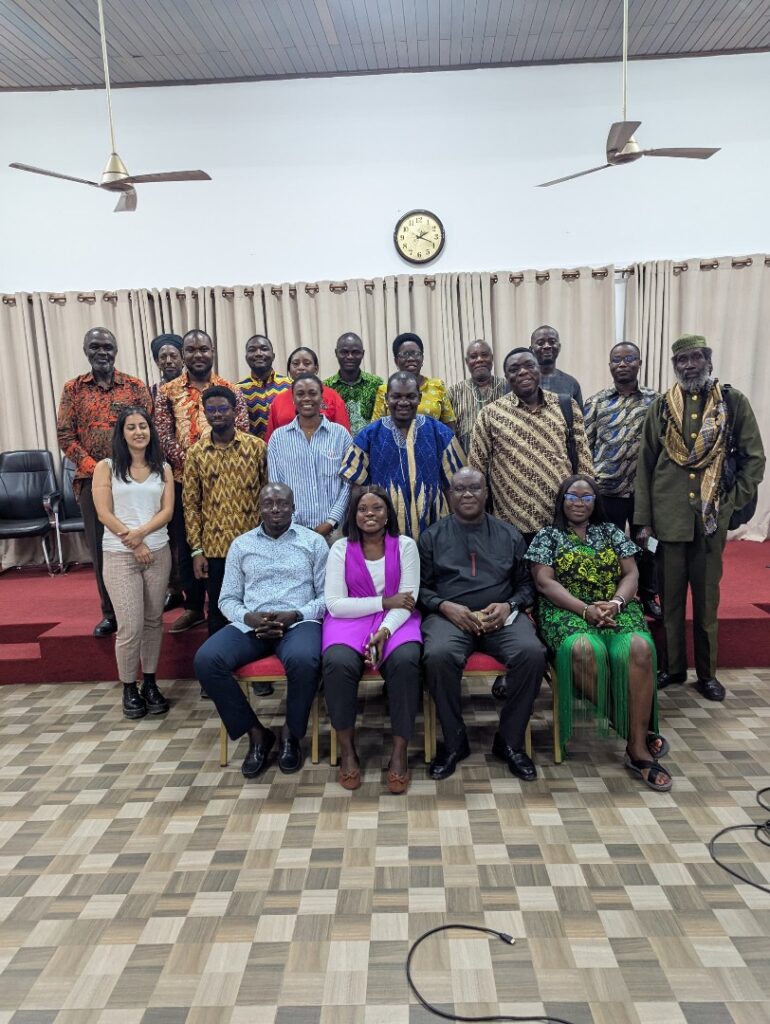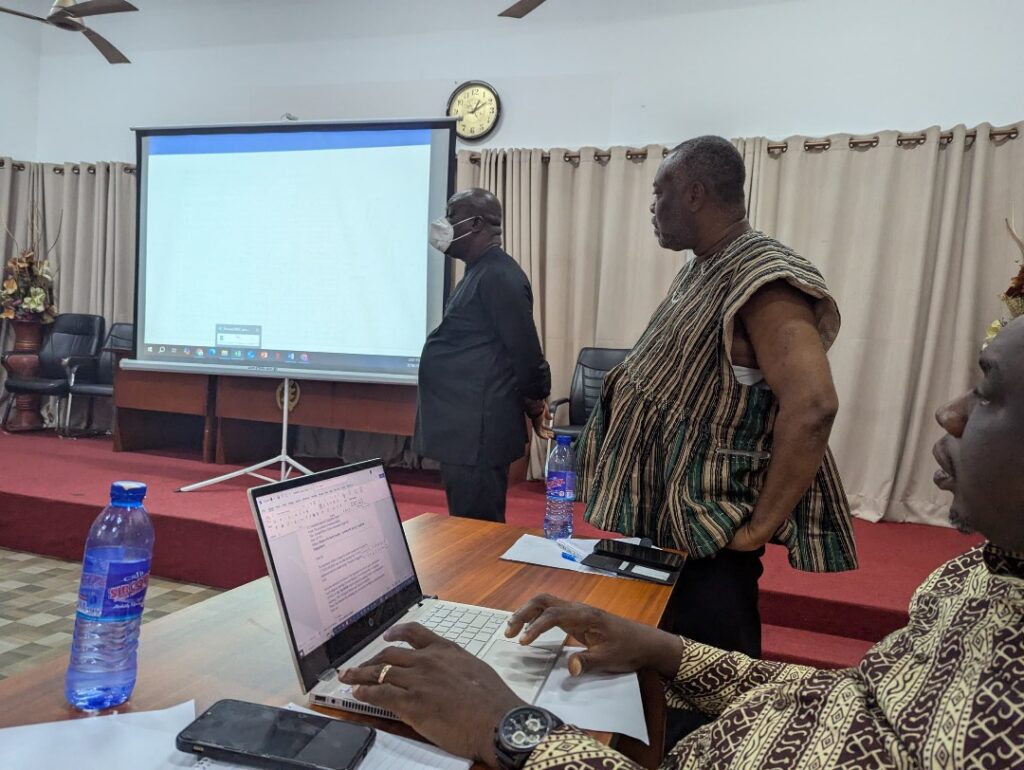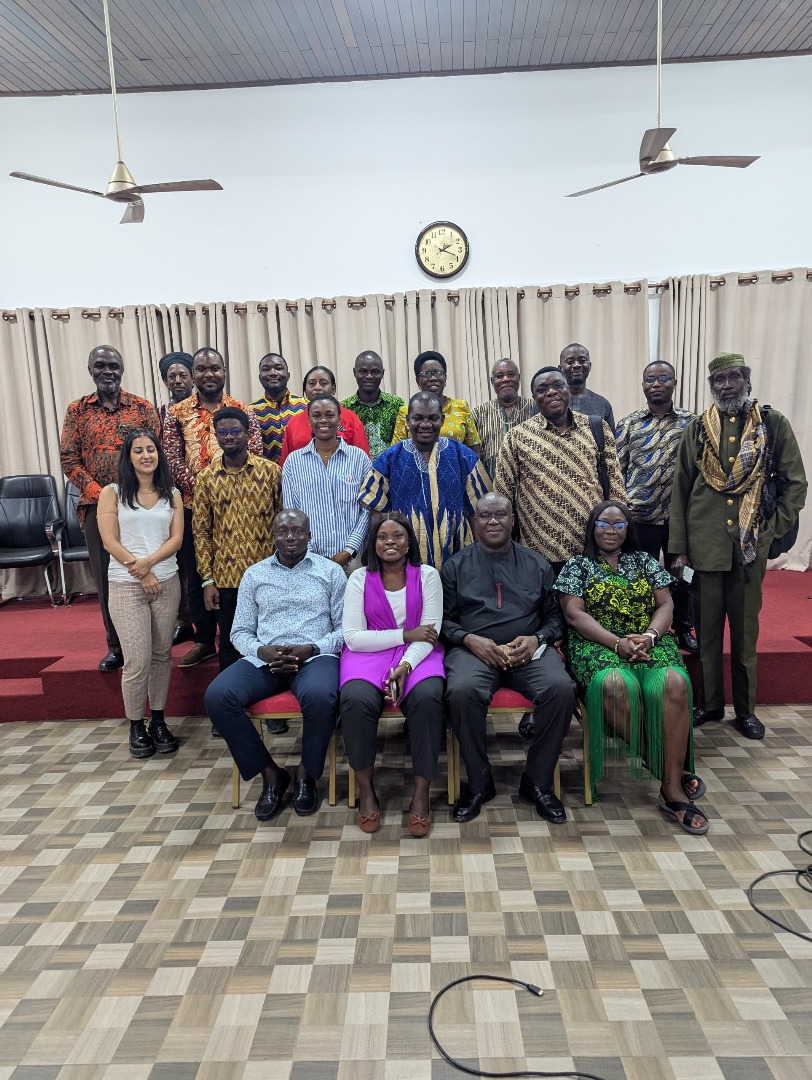ACE4ES Consortium Steps Up to Fill Emissions Data Gap in Support of Ghana’s Climate Goals
Accra, Ghana – The Agroecology and Circular Economy for Ecosystem Services (ACE4ES) Consortium, led by CSIR-Crops Research Institute has announced a major commitment to help Ghana overcome data limitations in its agriculture sector that are hampering effective climate planning under its updated Nationally Determined Contributions (GH-NDC 3.0).

The announcement came during a Civil Society – Government Technical Dialogue convened on 18th July 2025 at the CSIR–Science and Technology Policy Research Institute (STEPRI). The forum was organized by the Centre for Indigenous Knowledge and Organizational Development (CIKOD), in collaboration with Kasa Initiative Ghana and the Strategic Youth Network for Development (SYND). It brought together civil society organizations, media, researchers, and key state institutions to review and refine the Programmes of Action (PoAs) proposed by the Ministry of Food and Agriculture (MoFA) for inclusion in Ghana’s NDC 3.0.
A central figure in the deliberations was Mr. Kingsley Amoako, Director of the Climate Change Unit at MoFA, who presented the Ministry’s revised agricultural PoAs. These include:
- Fostering community-based climate-resilient agricultural systems
- Promoting climate-smart livestock and fisheries practices
- Scaling agroforestry and tree-based farming systems to enhance farm ecology
Mr. Amoako emphasized the government’s intent to integrate both adaptation and mitigation strategies rooted in climate-smart agriculture. However, he also acknowledged the current lack of adequate greenhouse gas (GHG) emission factors and baseline data as a critical barrier to setting realistic mitigation targets.
ACE4ES Responds to Data Gaps
In response, Dr. Kwaku Onwona-Hwesofour Asante, Principal Investigator of the ACE4ES project and Research Scientist at CSIR–Crops Research Institute, pledged the Consortium’s support in addressing these gaps.

“Without localized emission factors, Ghana’s agriculture sector cannot contribute accurately to the national mitigation inventory. The ACE4ES Consortium will extend its GHG monitoring work beyond our Multicultural Technology Park to Ghana’s key agroecological zones,” said Dr. Asante.
He announced that ACE4ES will collaborate closely with:
- CSIR–Animal Research Institute
- Department of Animal Science, KNUST
- MoFA’s Climate Change Unit
This partnership aims to generate Tier 1 emission factors for critical subsectors—rice cultivation, livestock emissions, post-harvest burning, manure management, and fertilizer application—all of which contribute to Short-Lived Climate Pollutants (SLCPs) such as methane, black carbon, and other super pollutants like nitrous oxide.
Agroecology as a Pillar of Adaptation
The meeting also endorsed agroecology and circular economy principles as central to Ghana’s adaptation framework. Participants supported the integration of climate-resilient cropping systems that enhance soil fertility, biodiversity, and productivity—areas where the ACE4ES Consortium has already demonstrated impact through its Living Labs and MTP installations.
Broader Stakeholder Endorsements
Other participating organizations, including the Institute for Sustainable Energy and Environmental Solutions (ISEES), highlighted the role of community-led agroecology, seed sovereignty, and ecovillage models in fostering local climate resilience.
The event concluded with a strong call for the recognition of CSO contributions to Ghana’s NDCs through a structured reporting framework, and for closer collaboration between government agencies and civil society to ensure a just and data-driven agricultural transformation.
ACE4ES Moving Forward
The ACE4ES Consortium, supported by the Climate and Clean Air Coalition (CCAC) and regional partners, reaffirmed its leadership in science-based, inclusive climate action. Through joint emissions monitoring, technology demonstrations, and policy engagement, ACE4ES aims to support Ghana’s ambition under the Paris Agreement, the Global Methane Pledge, and national development frameworks.
Media Contact:
ACE4ES Africa Secretariat
📧 Email: info@ace4es.org
🌐 Website: www.ace4es.org

